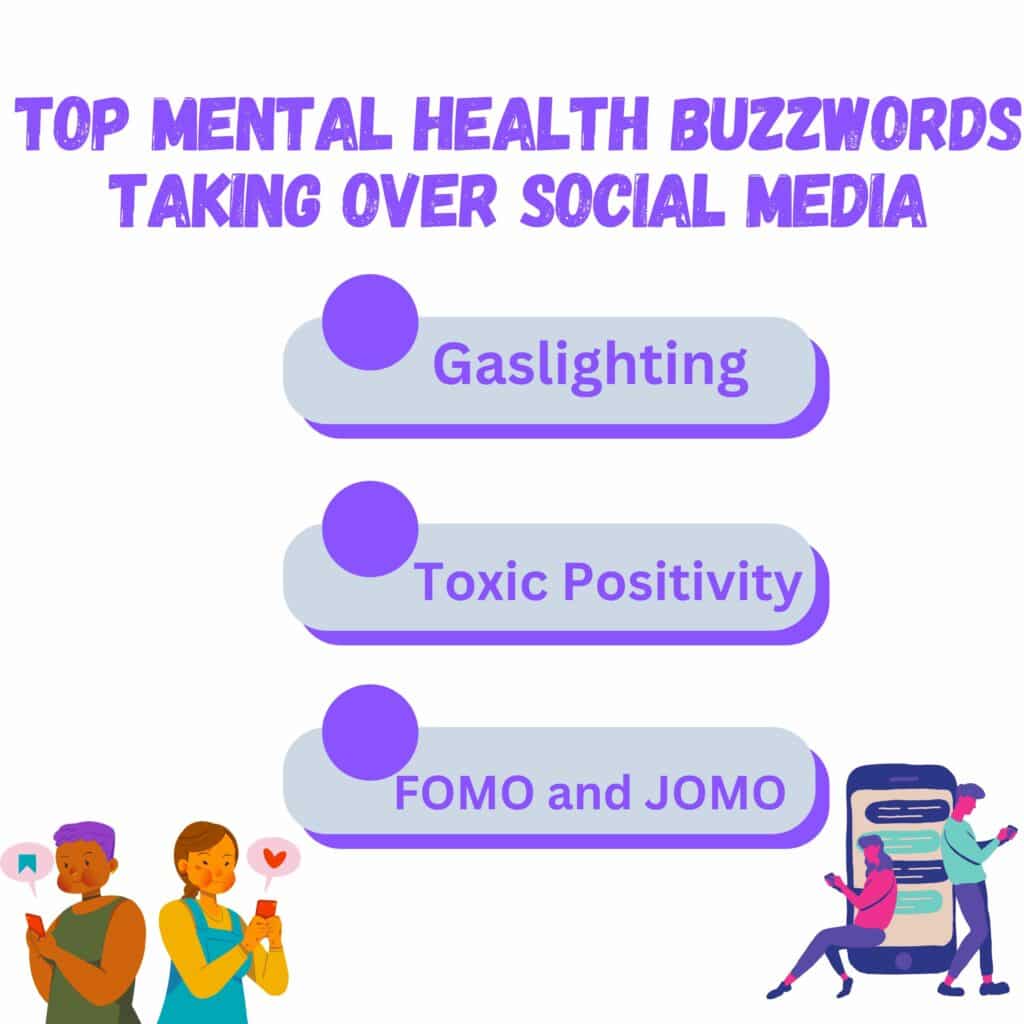
Social media has become a powerful tool for normalizing conversations around mental health, but it has also given rise to a new wave of buzzwords that are quickly taking over our feeds. From terms like “gaslighting” to “self-care,” these concepts are not only shaping how we talk about mental health online, but also how we understand and address our own psychological well-being. In this blog, we’ll explore some of the most popular mental health buzzwords trending on social media and what they really mean.
1. Gaslighting
“Gaslighting” has exploded in popularity on social media in recent years, especially with the rise of mental health awareness campaigns. But what exactly does it mean? Gaslighting refers to a form of psychological manipulation in which someone tries to make another person doubt their perception of reality. It’s often used in toxic relationships to control or undermine someone’s confidence. Social media has helped bring attention to this form of abuse, allowing people to identify and call out manipulative behavior in their personal lives.
2. Toxic Positivity
Toxic positivity is a term used to describe the pressure to maintain a positive attitude no matter what, even when faced with hardship or mental health struggles. The rise of motivational quotes and cheerful affirmations on social media has inadvertently fostered an environment where negative emotions are often dismissed or invalidated. While positivity can be helpful, constantly ignoring difficult emotions can be harmful. Social media users are now more conscious of the need for balance, encouraging genuine expression of feelings rather than forcing a “good vibes only” mindset.
3. Self-Care
Self-care has become a buzzword that’s all over social media, and for good reason. It emphasizes the importance of taking care of your physical, emotional, and mental well-being. However, self-care has often been reduced to simple activities like taking bubble baths or buying skincare products. While these can be part of self-care, true self-care goes beyond these superficial practices to include setting boundaries, seeking therapy, and prioritizing mental health. Social media has played a significant role in encouraging people to recognize the importance of these deeper forms of self-care.
4. FOMO and JOMO
FOMO (Fear of Missing Out) and its counterpart JOMO (Joy of Missing Out) have become popular terms for describing how social media affects our sense of connection and well-being. FOMO refers to the anxiety that arises when you feel like others are experiencing something exciting while you’re left out. On the flip side, JOMO emphasizes the satisfaction and peace that come with opting out of social obligations and enjoying time alone. As social media continues to magnify the highlights of others’ lives, these terms highlight the contrasting emotional responses many people experience.
5. Mindfulness
Mindfulness, the practice of staying present in the moment and paying attention to one’s thoughts and feelings without judgment, has been trending on platforms like Instagram and TikTok. With the rise of fast-paced digital consumption, mindfulness offers a counterbalance by encouraging people to slow down, breathe, and focus on their mental and emotional state. Social media has become a hub for sharing mindfulness techniques, meditation sessions, and affirmations that can help individuals manage stress and anxiety.
6. Imposter Syndrome
Imposter syndrome is the feeling of inadequacy or self-doubt despite being successful or accomplished. It’s a buzzword that’s often shared among young professionals, students, and creatives on social media, particularly in discussions about career or academic challenges. The pressure to appear confident and successful on social media often exacerbates these feelings, but conversations around imposter syndrome are helping to normalize the struggle and encourage individuals to embrace their achievements without feeling like frauds.
7. Mental Health Awareness
The overall movement for mental health awareness continues to gain momentum on social media. Hashtags like #MentalHealthMatters and #ItsOkayToNotBeOkay are used to destigmatize mental health struggles and encourage people to seek help. The accessibility of online communities has made it easier than ever for individuals to connect, share experiences, and offer support, ultimately leading to a greater understanding of the importance of mental health.
Conclusion
As mental health awareness continues to grow, social media has become a double-edged sword: while it offers a platform for important discussions and support, it can also contribute to the spread of misinformation or oversimplification of complex issues. However, the buzzwords mentioned above are encouraging more people to reflect on their mental health, recognize unhealthy patterns, and take action toward healing.
If you’re navigating any of these mental health struggles or need professional guidance, Surbhi Manocha, a counseling psychologist based in Meerut, can help you work through your emotions and provide expert support. With her personalized therapy services, Surbhi offers a safe space for individuals to explore their mental health and work toward long-term well-being.
